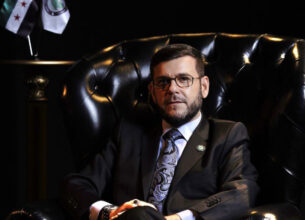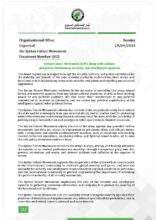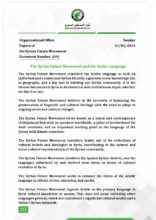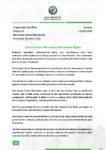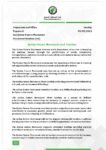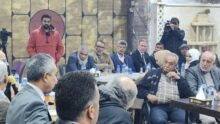The Syrian Future Movement (SFM) and Political Participation
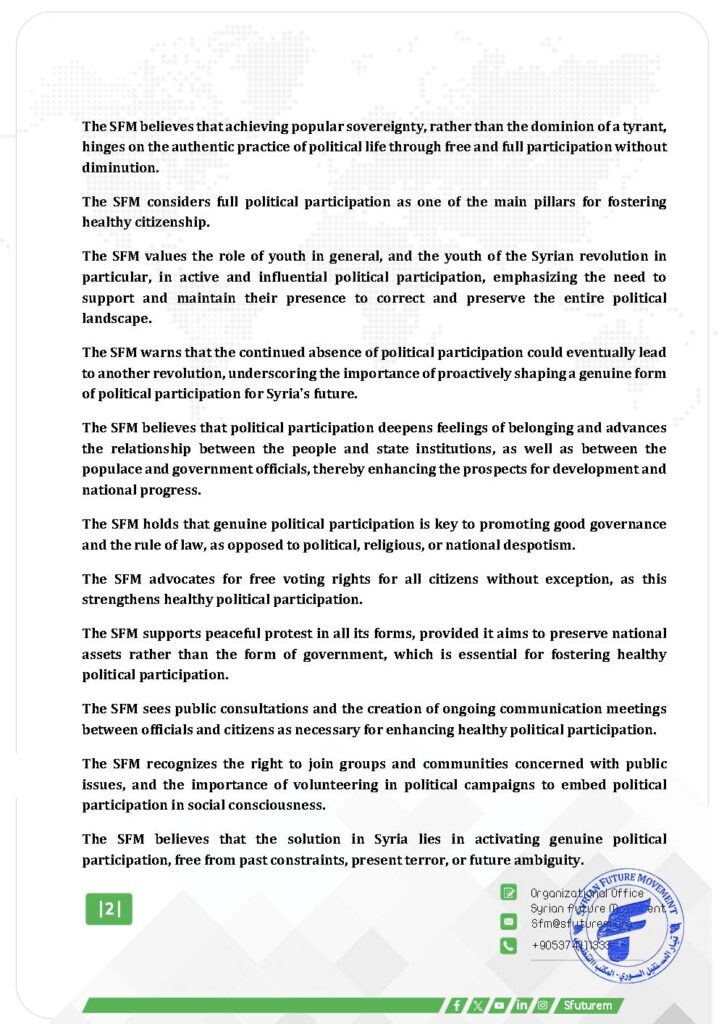
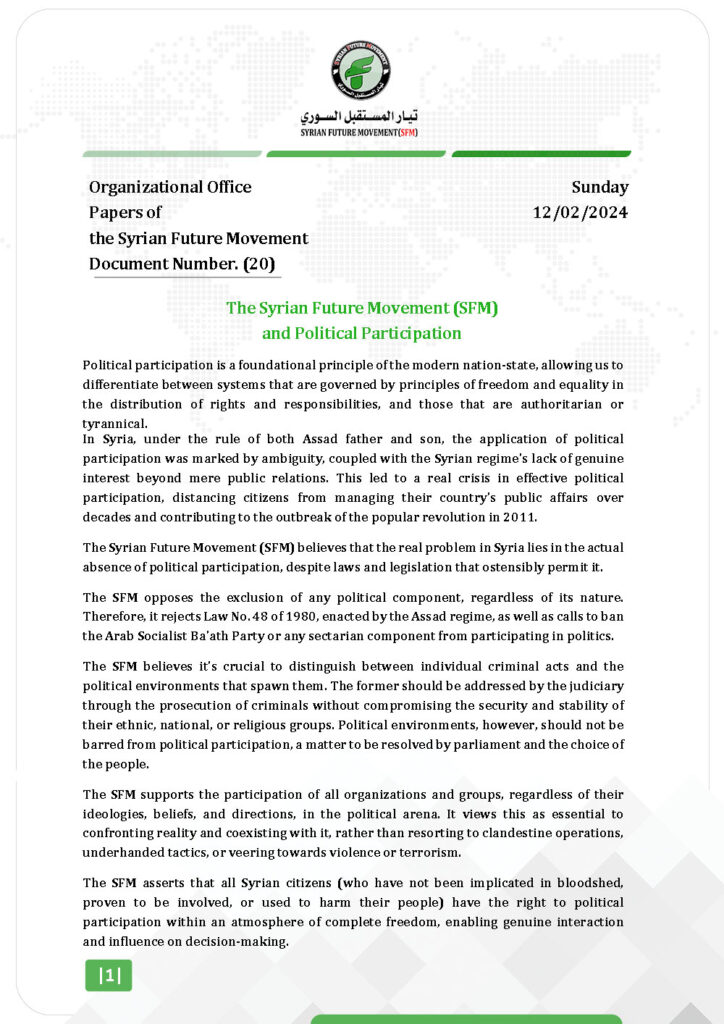
Political participation is a foundational principle of the modern nation-state, allowing us to differentiate between systems that are governed by principles of freedom and equality in the distribution of rights and responsibilities, and those that are authoritarian or tyrannical.
In Syria, under the rule of both Assad father and son, the application of political participation was marked by ambiguity, coupled with the Syrian regime’s lack of genuine interest beyond mere public relations. This led to a real crisis in effective political participation, distancing citizens from managing their country’s public affairs over decades and contributing to the outbreak of the popular revolution in 2011.
The Syrian Future Movement (SFM) believes that the real problem in Syria lies in the actual absence of political participation, despite laws and legislation that ostensibly permit it.
The SFM opposes the exclusion of any political component, regardless of its nature. Therefore, it rejects Law No. 48 of 1980, enacted by the Assad regime, as well as calls to ban the Arab Socialist Ba’ath Party or any sectarian component from participating in politics.
The SFM believes it’s crucial to distinguish between individual criminal acts and the political environments that spawn them. The former should be addressed by the judiciary through the prosecution of criminals without compromising the security and stability of their ethnic, national, or religious groups. Political environments, however, should not be barred from political participation, a matter to be resolved by parliament and the choice of the people.
The SFM supports the participation of all organizations and groups, regardless of their ideologies, beliefs, and directions, in the political arena. It views this as essential to confronting reality and coexisting with it, rather than resorting to clandestine operations, underhanded tactics, or veering towards violence or terrorism.
The SFM asserts that all Syrian citizens (who have not been implicated in bloodshed, proven to be involved, or used to harm their people) have the right to political participation within an atmosphere of complete freedom, enabling genuine interaction and influence on decision-making.
The SFM believes that achieving popular sovereignty, rather than the dominion of a tyrant, hinges on the authentic practice of political life through free and full participation without diminution.
The SFM considers full political participation as one of the main pillars for fostering healthy citizenship.
The SFM values the role of youth in general, and the youth of the Syrian revolution in particular, in active and influential political participation, emphasizing the need to support and maintain their presence to correct and preserve the entire political landscape.
The SFM warns that the continued absence of political participation could eventually lead to another revolution, underscoring the importance of proactively shaping a genuine form of political participation for Syria’s future.
The SFM believes that political participation deepens feelings of belonging and advances the relationship between the people and state institutions, as well as between the populace and government officials, thereby enhancing the prospects for development and national progress.
The SFM holds that genuine political participation is key to promoting good governance and the rule of law, as opposed to political, religious, or national despotism.
The SFM advocates for free voting rights for all citizens without exception, as this strengthens healthy political participation.
The SFM supports peaceful protest in all its forms, provided it aims to preserve national assets rather than the form of government, which is essential for fostering healthy political participation.
The SFM sees public consultations and the creation of ongoing communication meetings between officials and citizens as necessary for enhancing healthy political participation.
The SFM recognizes the right to join groups and communities concerned with public issues, and the importance of volunteering in political campaigns to embed political participation in social consciousness.
The SFM believes that the solution in Syria lies in activating genuine political participation, free from past constraints, present terror, or future ambiguity.
